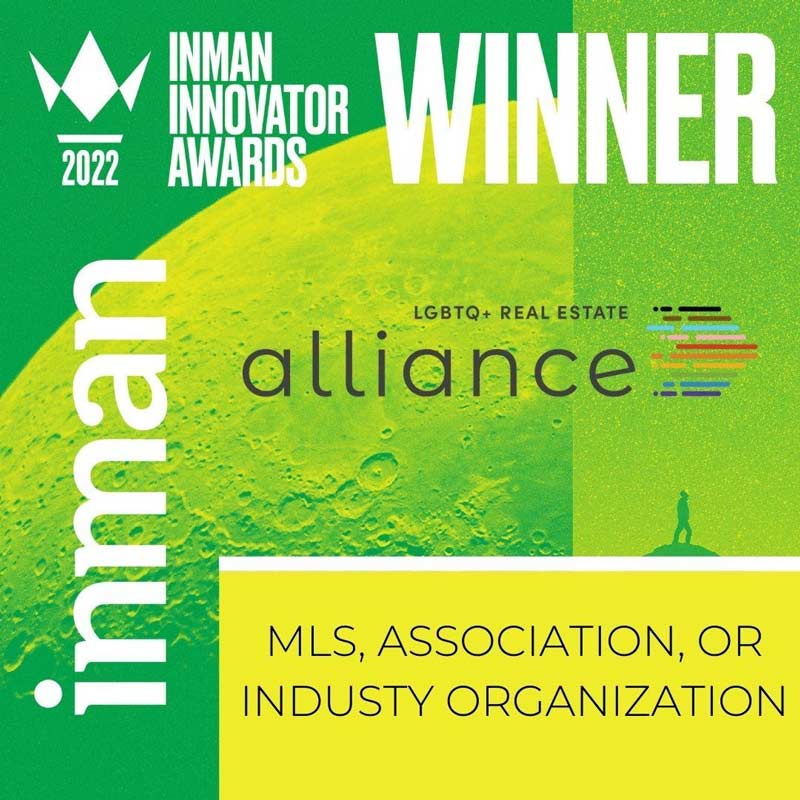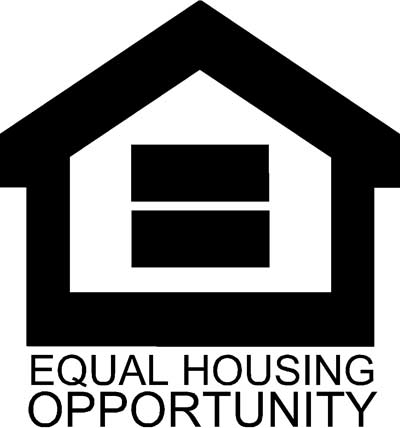REAL ESTATE PROFESSIONALS ARE LEADING OFFENDERS; LOCAL REAL ESTATE INDUSTRIES ARE BEHIND COMPANIES IN ACCEPTANCE LEVELS
REPORT ALSO SHOWS GROWTH OF LGBTQ+ COMMUNITY AND SAME-SEX MARRIAGE HAS CREATED OPPORTUNITIES FOR HOMEOWNERSHIP
St. Paul, Minn. (April 26, 2022) – The LGBTQ+ Real Estate Alliance, one of the nation’s leading LGBTQ+ trade organizations with more than 2,200 members, has unveiled its second annual LGBTQ+ Real Estate Report, which found that while Diversity, Equity and Inclusion (DEI) efforts and marketing towards the LGBTQ+ community have gained traction, unconscious bias and blatant discrimination remain all too common in the real estate industry. This includes 20.7% of surveyed Alliance members identifying real estate agents as the leading culprit in how housing discrimination occurs against the LGBTQ+ real estate home buyer.
Titled “Discrimination And Its Impact On LGBTQ+ Community: Real Estate Professionals And Consumers,” the report showed that 72% of LGBTQ+ Real Estate Alliance members believe their local real estate industry has placed an increased emphasis on DEI over the last three years, while 69% felt the same about their own company. Over the last five years, 60% of Alliance members have also noted at least somewhat of an increase in their real estate brand’s marketing targeting the LGBTQ+ community, with 55% reporting similarly for their company.
But at the same time, nearly 20% of respondents shared that they experience high levels of unconscious bias within their local real estate industry, almost double the 11% who report similarly about their own company. And, while 68% of respondents reported that episodes of blatant discrimination against them and other LGBTQ+ colleagues within their company were extremely rare or nonexistent, only 40% shared similar sentiments about their local real estate industry.
Seventeen percent of respondents also cited having examples from the last three years of industry colleagues not wanting to work with them because they are part of the LGBTQ+ community, while only six percent shared the same sentiment about their own company colleagues.
“The real estate industry has taken positive steps toward education and DEI programming, but we can’t just sit back and relax. This report shows that we have so much more work to do,” said Dave Gervase, President of the LGBTQ+ Real Estate Alliance and lead of the ResideOceanside Group at Keller Williams Realty Professionals in Fort Lauderdale, Fla. “Societal acceptance levels of the LGBTQ+ community are at an all-time high, allowing for a record number of American adults to self-identify as part of the LGBTQ+ community, but there is still a high volume of discrimination. This report also showcases how the LGBTQ+ community is becoming a larger force on the housing front and how discrimination can be seen during the buying and selling process. We hope that this report creates increased dialogue and learning within the real estate industry. We all want to work to educate and allow all professionals to be to be more inclusive to their LGBTQ+ agents and clients.”
Gervase pointed out that an annual Gallup poll reported that the LGBTQ+ community has grown to 7.1% of the U.S. adult population compared to 3.5% in 2012. This has occurred largely because of younger generations fueling a societal shift in acceptance levels leading to 20.8% of Gen Z identifying as LGBTQ+ followed by 10.5% of millennials. Gallup reported that only 2.6% of baby boomers identify as part of the LGBTQ+ community.
| Age Group | Percentage who self-identify as LGBTQ+ |
| U.S. Adult Population | 7.1% |
| Gen Z (born 1997-2012) | 20.8% |
| Millennials (born 1981-1996) | 10.5% |
| Generation X (born 1965-1980) | 4.2% |
| Baby boomers (born 1946-1964) | 2.6% |
| Traditionalists (born before 1946) | 0.8% |
Along with growth in numbers, the legalization of same-sex marriage in June 2015 has also played a dramatic role in improving home ownership opportunities for the LGBTQ+ community. Since then, 64% of LGBTQ+ Real Estate Alliance members have seen an uptick in the number of LGBTQ+ couples as homeowners, with 42% noticing an increase of LGBTQ+ singles entering homeownership:
| Change in number of LGBTQ+ homeowners since 2015 | Change in number of LGBTQ+ couples as homeowners since 2015 | Change in number of LGBTQ+ singles as homeowners since 2015 | |
| Dramatically increased | 13.6% | 18.9% | 7.6% |
| Somewhat increased | 44.0% | 45.8% | 34.0% |
| No change | 18.4% | 11.7% | 25.2% |
| Somewhat decreased | 0.4% | 0.4% | 2.0% |
| Dramatically decreased | 0% | 0.4% | 0% |
Additionally, 40% have recognized an increase in LGBTQ+ homebuyers choosing to live in communities not traditionally known as “LGBTQ+-friendly.”
Financial concerns are the overwhelming reasons why LGBTQ+ renters continue renting, according to the report, with home prices and lack of down payment funds as the barriers most Alliance members cite when asked to choose their top three. This is occurring despite 34% of respondents indicating that their average LGBTQ+ client puts down at least 20% on their mortgage. A lack of understanding of the buying and mortgage process rounded out the list of the top greatest barriers:
| LGBTQ+ community barriers to homeownership | Percent of responses |
| Home prices | 76.5% |
| Lack of down payment funds | 61.9% |
| Short-term financial concerns | 21.5% |
| Lack of understanding of the buying process | 26.7% |
| Lack of understanding of the mortgage process | 17.4% |
When these consumers begin the home buying process they are still met with discrimination. Along with real estate professionals discriminating against LGBTQ+ buyers, Alliance members cited purchase-related forms and discriminatory sellers as the most visible examples over the last three years of how home buying discrimination occurs. Unfortunately 38% of respondents indicated that there has been no change in the amount of discrimination against LGBTQ+ homebuyers over the last three years, while 14% believe it has risen. The below chart indicates the top examples of how housing discrimination is evident:
| Types of discrimination | Percentage of responses |
| Real estate professionals discriminated against prospective homebuyer | 20.7% |
| Legal forms needing signature did not adequately represent life experiences of potential homebuyer | 19.0% |
| Seller discriminated against prospective homebuyer | 17.4% |
| Seller refused to sell to prospective homebuyer | 8.9% |
| Lender quoted higher mortgage rates and/or worse terms to prospective buyer | 4.0% |
LGBTQ+ Real Estate Alliance members are not shying away from their sexual orientation or gender identity in generating business and income. Forty-six percent of respondents reported they are known in their company as an “LGBTQ+ agent,” and 79% report they want to be known as one who specializes in working in the community.
Interestingly, 40% of members who participated in the survey reported their number of LGBTQ+ clients has increased over the last three years, while slightly more (43%) reported an increase in non-LGBTQ+ clientele. Additionally, 34% of members report that LGBTQ+ people make up at least 30% of their real estate “sphere of influence.”
“We are living in unique times where the LGBTQ+ community is being attacked in the political arena at the same time that society continues to embrace us,” said Ryan Weyandt, CEO of the LGBTQ+ Real Estate Alliance. “The real estate industry has been at the forefront of acceptance. Since we launched in 2020, the Alliance has been welcomed with open arms. Not only do we have some of the largest brands, lenders, title companies and insurance firms as partners, but the National Association of Realtors®, Canadian Real Estate Association and a lengthy list of state, regional and local Realtor® organizations are also supporters. They are working closely with us to identify areas of improvement and how to address instances of discrimination. We all know ridding the industry and society of discrimination against sexual orientation and gender identity will not happen overnight. It will take a lot of continued work.”
A download of the full report is available here.
Methodology: The LGBTQ+ Real Estate Alliance allowed members to participate in the second annual member survey from March 14-24. More than 320 members participated. This report only includes actual responses and removes those who replied “don’t know” or “N/A” when appropriate.
ABOUT THE LGBTQ+ REAL ESTATE ALLIANCEThe LGBTQ+ Real Estate Alliance is a 501(c)6 non-profit dedicated to empowering the LGBTQ+ community on the path to homeownership as we also advocate on behalf of the community on housing issues. The Alliance, founded in June 2020, is an all-inclusive organization that works to improve the professional lives of its members through a public-facing Alliance Referral Community. The Alliance began accepting members in October 2020 and has more than 2,200 members and 50 chapters in the U.S., Canada and Puerto Rico. For more information visit realestatealliance.org.



